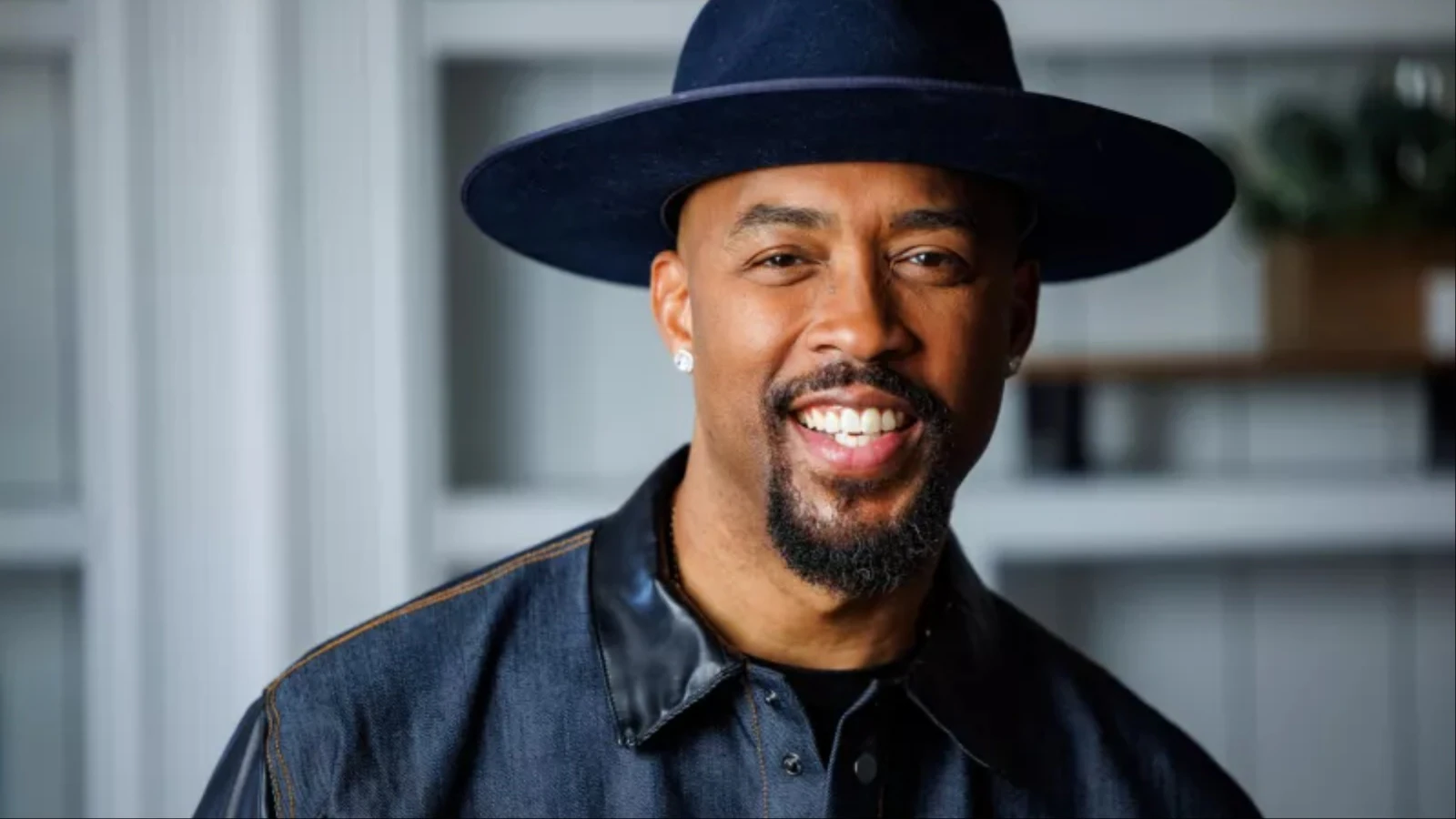
Representative Greg Casar, the chair of the Congressional Progressive Caucus, isn’t worried that his party may get blamed in a potential government shutdown coming this week, saying he’s “continuing to push for our entire party in the House and Senate to stand up and fight.”
“I think people across the country know that Donald Trump is raising your costs and wants to act basically like a dictator. But they don’t know who the Democrats are, and if the Democrats are willing to stand and fight,” the 36-year-old Texas Democrat told Newsweek in an exclusive interview on Friday.
Why It Matters
The government is set to shutdown at midnight on Wednesday, unless Democrats and Republicans reach a deal before that deadline. Currently, the two sides appear at a complete impasse, with Democrats saying that the GOP controls the House, the Senate and the White House and, as a result, shouldn’t expect their party to rubber stamp whatever they want to push through.
President Donald Trump and Republicans say that they are putting forward a clean funding bill, and that Democrats are forcing a shutdown, which will hurt Americans. The president and top Democrats, Senate Minority Leader Chuck Schumer and House Minority Leader Hakeem Jeffries, are set to meet Monday at 3 p.m. to discuss the potential for some kind of deal.
Casar on a Potential Shutdown
The young progressive leader, like many in his party, sees this as the moment that Democrats can use the little leverage they have in an effort to shine a spotlight on changes Trump and Republicans are pushing through.
“Donald Trump put Elon Musk basically in charge of almost everything, while Elon Musk waved a chain saw around showing the kind of chain saw he wants to take to the government,” Casar said. “So in this case, I think Democrats need to show that we draw a line somewhere, and that we’re not going to keep on voting for these sorts of actions by Donald Trump.”
While Musk spearheaded the Trump administration Department of Government Efficiency (DOGE) effort earlier this year, he stepped away from his government role at the end of May. He went on to have a public feud with Trump over the president’s signature “One, Big Beautiful Bill,” but the two billionaires have since appeared to have somewhat mended their relationship.
Back in March, ahead of a looming shutdown, Schumer and several Senate Democrats blinked, and allowed a Republican stopgap measure to move forward, despite nearly every House Democrat voting against it. The Senate minority leader faced significant backlash from Democrats in Congress, as well as the party’s base in that moment. This time, however, Schumer insists things are different and it’s the moment for the party to take a stand.
“I greatly appreciated leader Jeffries back in March saying that House Democrats would not vote for Donald Trump’s budget that was going to take away services and health care from our own constituents. And I was publicly critical of leader Schumer whipping some of the votes to essentially move things forward in the Senate,” Casar said.
On Fighting for the Working Class
Related to taking a stand in this government funding moment, Casar believes that the party needs to refocus its efforts and messaging to reach working class voters.
“Let’s go back to the facts here. Donald Trump’s budget puts us on track to 15 million people losing their health care, an additional 20 million people having their health care premiums nearly double, and then virtually everybody else seeing their health care costs go up as a result. Democrats need to stand up and say ‘hell no,'” he said.
Casar believes this messaging, focusing on the issues that working voters face day-to-day, is critical to winning again in 2026 and 2028.
“We need to be known as a pro-worker and anti-billionaire party,” he said.
“I think we should say that we are willing to take on the rich and the powerful who have rigged your economy and your government against you and that we’re gonna stand with you so that you’ve got more money in your pocket and a secure future for yourself and your family,” Casar said.
Many within the Democratic Party believe politicians should moderate their stances on many issues in the wake of their 2028 defeat. But Casar said he doesn’t view it as becoming more centrist or more progressive, telling Newsweek that the goal should be running “directly toward working people and earn back the trust of working class people.”
Casar has joined Senator Bernie Sanders, a progressive independent from Vermont, on several stops of his Fighting Oligarchy tour, including in swing states. He’s also visited red districts to campaign and promote the message of taking on billionaires and repositioning the party to focus on working people.
“What I heard from people there, not just progressives, but also independents and self-identified conservatives, was that maybe they weren’t on board with Bernie’s message a few years ago, but now maybe they could see that Bernie was telling the truth here the entire time,” Casar said.
He pointed to the influence of Musk: “the richest people on earth sitting in the front row at Trump’s inauguration ahead of Trump’s own family and ahead of Trumps own cabinet.” Casar said as voters see these things happening, he believes “there are more and more people in this country that are ready to unite around putting working people ahead of the billionaire class and the ultra rich.”
What People Are Saying
Senator Chuck Schumer on NBC’s Meet the Press on Sunday about planned meeting with Trump: “They felt the heat. And they now want to sit down. The fundamental question hasn’t been answered yet. Are they serious about negotiating with us in a real way?”
Senate Majority Leader John Thune, a South Dakota Republican on X: “The choice remains the same: Democrats can either vote for a clean, short-term, nonpartisan CR that prioritizes the American people, or they can choose a completely avoidable shutdown that prioritizes politics above all else.”
The White House in a statement e-mailed to Newsweek: “As Democrats bring the nation to the brink of a government shutdown, they jeopardize critical funding for veterans, seniors, law enforcement, and many others. As Democrats threaten to disrupt the lives and livelihoods of millions of Americans, organizations across the country are urging them to follow through on their word, join with President Donald J. Trump and Republicans, and keep government functioning for the people it serves.”
What Happens Next
Trump is scheduled to meet with Schumer and Jeffries on Monday at 3 p.m. to discuss how to avert a shutdown.
Full Transcript of Interview With Greg Casar
The transcript has been lightly edited for clarity.
Newsweek: As the leader of the Congressional Progressive Caucus, why specifically do you believe in this moment progressive politics are the answer?
Greg Casar: Look, after losing the last presidential election, everybody would expect me, the Progressive Caucus chair, to say we need to be more progressive and the chair of the more centrist Democrats to say, we need be more centrist. I don’t think the answer is that easy. I think we need not just run to the left or to the right, we need to run directly toward working people and earn back the trust of working class people for the Democratic Party.
That means we need to pass policies that drastically raise up wages, that take on big corporations and drive down prices, make joining a union a right, not a fight, to make sure that people can retire and afford child care and school for their kids. Now, if you want to call that progressive policy, that’s what I think it is, but at the end of the day, we need to be willing to take on the billionaire class and make things better for everyday people because too many people wonder what the Democrats really stand for. I believe we need to be known as a pro-worker and anti-billionaire party.
If you had to condense what you think the Democratic message should be going into 2026 and 2028 into just a couple sentences or bullet points, what would that be?
I think we should say that we are willing to take on the rich and the powerful who have rigged your economy and your government against you and that we’re gonna stand with you so that you’ve got more money in your pocket and a secure future for yourself and your family.
I think critics would push back on this view and this messaging saying, “Hey, Bernie Sanders has been saying this for over 10 years now. Biden actually adopted a lot of these policies and now Democrats are completely out of power.” So what is your response to that pushback?
President Biden signed important pieces of legislation into law, but many of those pieces of legislation either did not have an immediate impact of raising people’s wages and lowering their costs, or we didn’t talk about it every single day. I think that it is so important that Democrats make it clear that our number one issues are the issues of the working class. And I went to far too many swing states and talked to far too many voters this last election cycle who thought that Democrats were basically defined as focusing on more what they saw as niche issues, and not on working class people’s issues. So we gotta make that the focus.
Also, Democrats have been oftentimes too milk toast or have been unwilling to name villains to show the working people, not just who we’re for, but also who we are willing to stand up and fight against. Right after this last election, there were many people in the Democratic Party who told us progressives not to take the fight to Elon Musk. They said that Elon Musk was too, had too much money and had too much power. But we showed that if we made the rallying cry, firing Elon Musk, if we showed people we are willing to take on the richest man in the world on behalf of everyday working people, then Democrats’ popularity surged up. We won special elections. And even though Elon Musk outspent us by historic amounts in election after election, we’ve been able to win special elections this year by showing people that we are willing to actually stand up against the rich and the powerful.
Nobody that I talked to that was an everyday voter thought that was our message last election. It needs to be our message this coming election cycle.
You mentioned going to different states and I know you’ve also been going to red districts with Bernie Sanders, and I think also on your own as well. What are you hearing from voters when you go to those events in conservative areas? What are the issues that they’re raising and concerned about?
I was recently in Tucson, Arizona, with Bernie and with AOC. We were gonna be at Catalina High School and the hope was to fill up a gym with about 2,500 people. Five blocks before we got to the high school, I started seeing the line of people that wanted to get in. 25,000 people showed up. We didn’t fit in the gym. We took over the entire football field and it was the biggest rally in Arizona history.
What I heard from people there, not just progressives, but also independents and self-identified conservatives, was that maybe they weren’t on board with Bernie’s message a few years ago, but now maybe they could see that Bernie was telling the truth here the entire time—when they see the richest people on earth sitting in the front row at Trump’s inauguration ahead of Trump’s own family and ahead of Trumps own cabinet. When they see people like Elon Musk running the cabinet meetings, I think there are more and more people in this country that are ready to unite around putting working people ahead of the billionaire class and the ultra rich who are jacking up your prices, taking away your health care and taking away government.
Right now, the Democratic Party, according to polls at least, is historically unpopular. There’s a lot of frustration from voters, especially with the leadership. As a Democratic leader in Congress, can you speak to that and how you view that frustration?
We need to massively reform the Democratic Party …. Sixty years ago, the average voter would tell you that the Number One priority of the Democratic Party was taking care of working people. That’s not what the average voter says about Democrats anymore. And we’ve got to change that.
Related to this, it’s looking like Democratic leaders are ready for a government shutdown, which I think a lot of the base supports. How are you thinking about that approach and what do you think can be achieved in this moment?
Donald Trump has been shutting down government services every single day since he retook office. In fact, just in the last few days, Donald Trump had his OMB director put out a memo saying that they were going to illegally fire thousands more workers and shut down more and more services with no legal reason whatsoever. So Democrats have a choice. Do we rubber stamp Trump’s budget and rubber stamp, Trump’s action? Or do we stand up and finally say, no, no more arbitrary shutting down of government services and no more taking health care away from millions of people?
I mean, let’s go back to the facts here. Donald Trump’s, budget puts us on track to 15 million people losing their health care, an additional 20 million people having their health care premiums nearly double, and then virtually everybody else seeing their health care costs go up as a result. Democrats need to stand up and say “hell no” to that, so that it becomes very clear that the Republicans are willing to shut down the government to be able to take away your health care, and that Democrats want to make sure you get the government services your taxpayer dollars pay for, and that you get your health care.
Are you at all worried that a shutdown could backfire and Democrats get blamed—potentially hurting the party’s image further?
Traditionally in Washington, D.C, both parties try to blame each other whenever there is a government shutdown, but something’s happening that’s different here, where Donald Trump is basically going and finding any microphone he can find and he’s saying, “I’m Trump, I’m shutting down the government.” Trump just the other day pulled out of a meeting with the Democratic leadership because Donald Trump basically seems to want a shutdown and doesn’t want to have a conversation about why he’s taking health care away from millions and millions of people.
Donald Trump, as I mentioned a minute earlier, had his budget director go out there and put out a memo talking about them shutting down government services. Donald Trump put Elon Musk basically in charge of almost everything, while Elon Musk waved a chain saw around showing the kind of chain saw he wants to take to the government. So in this case, I think Democrats need to show that we draw a line somewhere, and that we’re not going to keep on voting for these sorts of actions by Donald Trump.
Senator [Chuck] Schumer, [the Democratic Senate minority leader] got a lot of criticism in the last shutdown showdown for helping the GOP budget pass. He seems to have a different view this time, of course, but there’s been a lot of criticism of him as well as [Democratic House Minority Leader Representative] Hakeem Jeffries. Do you share any of that frustration? Do you think they’re the right leaders for this time?
I greatly appreciated leader Jeffries back in March saying that House Democrats would not vote for Donald Trump’s budget that was going to take away services and health care from our own constituents. And I was publicly critical of leader Schumer whipping some of the votes to essentially move things forward in the Senate. In my earlier answer, when I said, we’re not going to keep on voting for these sorts of budgets, I want to be clear. House Democrats virtually to a person, voted no [last time], and it was some number of folks in the Senate that moved this forward with the Republicans.
Now, Senator Schumer recognizes, I think months later, that we cannot continue to be asked by the Republicans to vote for whatever terrible legislation the Republicans happen to throw our way. The proof will be in the pudding here, but I think people across the country know that Donald Trump is raising your costs and wants to act basically like a dictator. But they don’t know who the Democrats are, and if the Democrats are willing to stand and fight. I’m hopeful and continuing to push for our entire party in the House and Senate to stand up and fight.
Related to this criticism of leadership, there’s also been concern about aging party members. Several members of Congress actually died this year, which some people blame for why some of these GOP bills have passed. How are you thinking about that? You’re one of the young leaders in Congress. Do you think there should be age limits? Or some of these people should just step aside?
In virtually every race I’ve ever run, starting out on my days on the city council, I never asked for people’s vote because I was the youngest person on the ballot. I asked for peoples’ vote to consider me as hopefully their best option on the ballot. And I think the Democratic Party needs to reform itself to make sure that when we decide positions of leadership, we pick based on who the best person is for the job. That hasn’t always been the way that we make decisions. I mean, that’s to put it mildly, right? We’ve had this seniority system where whoever it is that’s been around the longest just gets the next job. And that’s not how things should be done anymore, especially given the stakes here.
You’re starting to see the party shift away from that system. For example, the oversight committee where we had an opening in leadership because of the tragic death of my colleague, Jerry Connolly, which is not related to his age, it was that his cancer came back and we all know and love someone whose cancer has come back unexpectedly. But when he passed and there was an opening, we elected second term Congressman Robert Garcia to the post, a younger Democrat, a rising star in the party. And within just a few weeks of being the top Democrat on the oversight committee, Robert Garcia got a subpoena on the Epstein estate. That’s how we got to this Epstein birthday book that Donald Trump said didn’t even exist. So I think it really shows the power of electing the right person at the right time. Robert is the first second term Democrat to lead the Democrats on a committee in over 100 years. So that is a real shift that we’re starting to make as a party.
Turning to Texas, this redistricting issue has been a big deal and gotten a lot of attention. You appear to be safe, but how do you think the Democrats in your state responded in that moment? Do you think it was effective and accomplished what they were hoping for?
Let’s just take a step back here. Let’s just pick the word United States off of it and talk about what happened as if this was some other country. In some country, there is a corrupt president who is scared that he’s going to lose an upcoming election. And so he orders his political allies to change the electoral maps and the electoral rules at the last minute. And then his allies threaten to arrest or remove from office. Anybody in the opposition who threatens to stand in their way. If you heard about that in the news, you’d say maybe democracy is on its last legs in that country, but that’s not some other country. That’s the news in the United States. That’s what happened here in Texas.
Donald Trump ordered that essentially he’d be given five more congressional seats out of the state of Texas. Governor Abbott threatened to send the FBI to go and arrest, or remove from office, Democrats that stood in his way. And instead of folding or rolling over, the Texas Democrats broke quorum. They went across the country. They blocked that vote for weeks and weeks. And that galvanized people all around America. And I think that showed people what it looks like to stand up and fight back.
And here’s the upshot. Here’s what I think is gonna happen. Even they’ve passed this map, that I think if you look at the latest legal filings, that the Trump Department of Justice and Texas Attorney General Ken Paxton are very worried that they drew this map illegally. So I think there’s a real chance that we block this five seat map by Donald Trump. But if Trump’s stacked right wing Supreme Court puts that map into place, they cannot draw out Texas Democrats anymore. People here are mobilized. People here are ready to do the work. I’m ready to tell you right now, I predict very strongly there’s no way that they pick up all five of those seats. I think we can hold off from them winning multiple of those seats.
And thanks to the bravery of Texas Democrats, now California Democrats have put on the ballot a map redraw in California where I think we will pick up five seats. So this is what it looks like when Democrats stand up and fight back because a couple of months ago, my Republican colleagues were like, “Nah, there’s no way you guys are gonna fight back in Texas or in California.” I think we showed what a Democratic fight back against Trump power grabs can really look like.
Back to the progressive caucus, I was actually kind of surprised when I read last weekend that for the first time ever, your caucus endorsed the Block the Bombs Act. I just kind of assumed that given the high profile progressives and their views on these issues, that the caucus would have long been behind something like this. My question is, why did that this just happen now? And what do you think has changed within your caucus to move that issue forward?
I think the news is actually different and bigger than that. It’s not that this is the first time the Progressive Caucus has endorsed the bill. This is the first time a major caucus in Congress has ever endorsed any kind of legislation that says we are not going to keep on sending bombs and sending basically offensive weaponry to Netanyahu’s killing of innocent Palestinians. So no caucus has ever taken this kind of step and the Progressive Caucus was the first one to do so.
I agree with many people that it feels in some ways very late, because obviously the killing of innocent people has been going on for far, far too long. But this was an important step. And yes, to your point, we do have very high profile members of Congress that have sponsored this legislation. I myself have never voted to send bombs to Netanyahu, but the progressive caucus is not a small group. We are nearly 100 members of Congress. So we are about half of the Democrats in the House of Representatives. So this move by the Progressive Caucus, which is not a call that I make, it’s not a call my board makes, it is a vote, an overwhelming vote of our membership, shows that basically nearly half of the House Democrats are now taking a strong position against Netanyahu’s illegal slaughter of innocent people in Gaza.
That to me is a very different place than where our Democratic Party was just a few years ago. So, of course we want the hostages returned. Of course we wants a ceasefire and peace and stability for people in both Israel and in Gaza and the West Bank and all around the world. But this is a bold stand by our Progressive Caucus members to say we’ve got to change course.
I believe in July, you introduced the Stop AI Price Gouging and Wage Fixing Act. Can you talk about that? I think a lot of voters maybe aren’t even aware of these issues.
I think we really need to start taking on the issues with artificial intelligence and the way that companies can exploit artificial intelligence to reduce our wages, to raise our prices and to take away people’s jobs. We should be making sure that AI is helping us thrive as a society, not just helping CEOs squeeze every last penny out of us. And people listening or reading or watching at home may not even know that right now, corporations can use AI and can surveil you to jack up your price or reduce your wage. Everybody knows, of course, that every time you log in on your browser, every time that you’re looking at a website, that big companies are sucking up your data. But what folks may not know is that companies can use that data to be able to find out how much they can charge you.
Think about it like this. Isn’t it awful that a company can know that you Googled a family obituary and therefore jack up the price of your airline ticket because they know you’re desperate to get to a family funeral? Or on the wage side, what if a company tracks your location on your phone and knows you went to a pawnshop, and so then if you are a DoorDash driver or an Uber driver, it offers you a lower wage for a drive because they know you’ve hit hard times? To me, that is price gouging and illegal wage fixing, but we’ve got to update our laws from decades ago to address AI.
Our price gouging laws were written so that corporations cannot take advantage of an entire community when a disaster strikes a whole community. A classic example is gas stations are not allowed to raise the price of gas when a hurricane is coming. But now with AI and with companies looking up and hovering up your private data online, companies could try to take advantage of individual disasters that hit you. And we just need to put a stop to these kinds of price gouging practices before they spread all over the economy.
Those are my main questions, but I always just like to ask, is there something unique or interesting about yourself that you don’t think a lot of people know and voters might find surprising?
You know, I spend so much of my time thinking about this job and doing this work while trying to take care of my family and friends. But some people may have known and looked up that I was a track athlete. I compete in this fastest man in Congress thing. To me, it’s not just about physical health, but actually about my mental health. So I started training for triathlons, not necessarily to compete, but just to make sure that I have like, it’s basically like my little meditation in the mornings to go do some time on the bike or in the pool or on the road because this work can be really taxing and the news can be very exhausting and dispiriting. So my little mental health practice every day is to be out there in the beautiful Texas weather all that I can.



